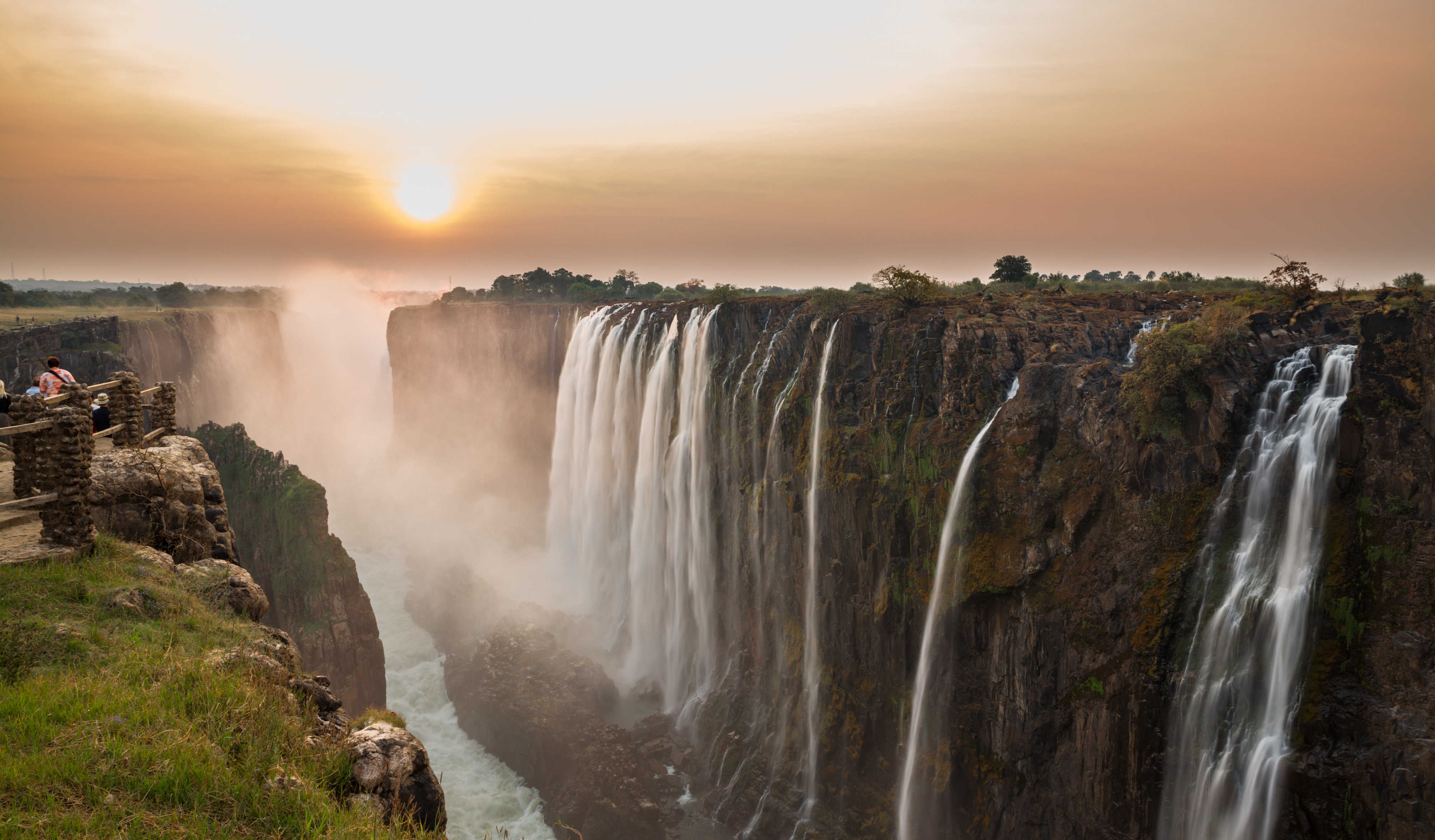
Victoria Falls is one of the most spectacular sights on planet Earth, with this amazing destination often visited alongside the beautiful Chobe National Park and Okavango Delta. All three locations are close enough to visit in a single multi-day tour, with each place providing numerous sightseeing opportunities for the adventurous traveller. While all three destinations are fairly safe and accessible, it’s important to be aware of relevant health issues, take necessary precautions, and get recommended vaccinations to avoid disease.
Victoria Falls is located at the border of Zambia and Zimbabwe in southern Africa. With a name that literally means “the smoke that thunders”, Mosi-oa-Tunya is an amazing sight and a bucket list destination for many. While it’s neither the highest or widest waterfall in the world, it is classified as the largest due to its sheer size and volume. The entire area surrounding Victoria Falls is a sight to behold, with the volume of the Zambezi River pouring through a number of awe-inspiring gorges. The best time to visit Victoria Falls is from February to May, directly after the impressive summer rains.
Chobe National Park is located in nearby Botswana, with this biologically diverse location known for its ferocious lions which prey on the local elephant population. The entire area is teeming with wildlife and rich vegetation, including lush floodplains and scorched marshes. Game viewing is unparalleled in this area, with Chobe also a bird lovers paradise. The trip from Victoria Falls to Chobe only takes a single day, with a number of tours also including the nearby Okavango Delta.
Also located in Botswana, the Okavango Delta is a large swampy area formed at a trough of the Okavango River. The Delta was recently named one of the Seven Natural Wonders of Africa, making it a must-see destination for many. This entire area is produced by seasonal flooding, draining in the summer months of January and February before the rain falls over the next four months. The flood waters peak between June and August, when the delta swells to three times its permanent size. The best time to visit Botswana is during the dry season from May to September, with Okavango flooded from June to October.
Victoria Falls, Chobe National Park, and the Okavango Delta are three of the most popular natural attractions in Africa. While tourist infrastructure is solid and tours are plentiful, there are some important safety considerations that you need to be aware of. Before embarking on this life changing adventure, it’s important to assess your physical health and fitness and become aware of any diseases and health risks that are relevant to the area. Along with getting fit before you go and packing a medical kit, it’s also important to be aware of various illnesses that may require vaccination.
It’s always important to consult your doctor before travelling overseas, with specific medical advice and vaccinations needing to be tailored to your itinerary. Some childhood vaccines may require boosting, such as measles and tetanus. It’s also a good idea to get influenza vaccine when travelling regardless of the time of year. The risk of influenza due to travel is much greater than when you stay home, and the consequences are greater too – it will ruin your trip.
There are some destination specific vaccines to consider for the trip as well. Everyone travelling in Africa ought to be covered for hepatitis A. Hepatitis B, typhoid and rabies may also be considered for more adventurous or extended travel. Yellow Fever vaccine requirement is a complex subject – definitive advice on the need for this vaccine is very dependent on your itinerary, and advice on the need for it is made on an individual basis.
Once you’re on the ground, problems are generally avoidable with common sense safe practice. Diarrhea is the most common ailment in travellers in the developing world, and safe eating and drinking is essential. It is also wise to take a medical kit that can be used to treat traveller’s diarrhea. As well as measles and influenza, other airborne viruses are a significant issue when travelling, and using alcohol-based hand sanitising gels in busy places like airports is the best protection. Malaria is the most important mosquito borne disease in Africa, and mosquito bite avoidance is the first step in limiting risk, using DEET based repellents, wearing long loose clothes and sleeping under mosquito nets if your accommodation is not air-conditioned . Malaria is vastly more prevalent in Africa than the rest of the world, and is rapidly fatal untreated. Anti-malarial medications are essential in most of Africa, and options are discussed with your doctor depending on your itinerary and circumstances.